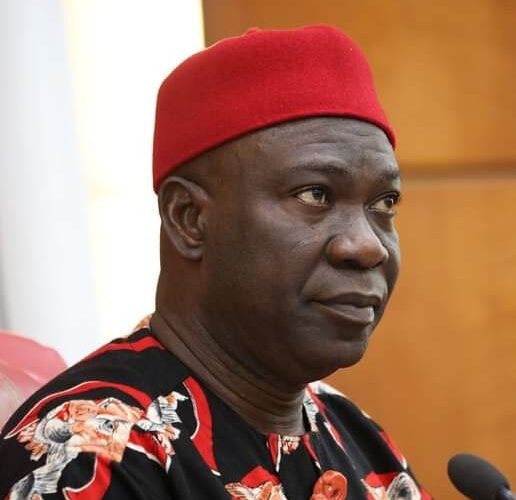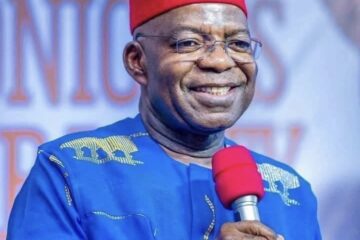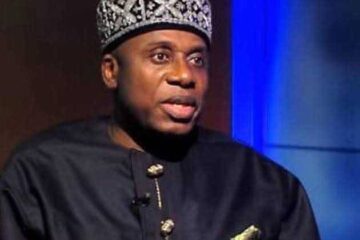Former Deputy Senate President Ike Ekweremadu on Wednesday berated those accusing Southeast leaders of keeping silent on the violence in the region.
Ekweremadu accused them of playing “dangerous politics with a very serious matter” in order to destroy the opposition in the Southeast ahead of the 2023 general elections.
He listed some past and present efforts by Southeast leaders and groups to restore peace in the region and the country.
The efforts, according to him, include meeting President Muhammadu Buhari, as far back as 2016.
To show that Southeast leader are determined to make insecurity in the region a thing of the past, Ekweremadu, who is currently the leader of the Southeast caucus in the Senate, disclosed that he had implored the Southeast Governors’ Forum and Ohanaeze Ndigbo, to call meetings of all stakeholders on the way(s) out of malaise.
However, the former deputy president of the Senate did not mention the names of the individuals and groups in a statement, he entitled “Playing extreme and dangerous politics with Southeast insecurity.”
Northern Elders Forum (NEF) had on Monday called on Igbo leaders to prevail on succession agitators in the Southeast to sheathe their swords in order to avert another war in the country.
A day after that, Imo State Governor Hope Uzodinma asked Igbo leaders to condemn the crisis in the Southeast.
But Ekweremadu added in the statement made available to reporters in Abuja, that records showed that the Southeast leaders had at various times individually and collectively stated their positions on the challenges in the region, the concerns, and demands of the people.
He said: “I have noted with concern the growing and well-choreographed attack on the Southeast opposition leaders for allegedly not condemning the rising insecurity and agitations in the Southeast and the activities of non-state actors.
“I believed initially that those were genuine concern about the security situation in the Southeast. However, I have come to the realisation that those making and inducing the statements are only playing politics.
“The objective is to lay the foundation for the harassment and possible destruction of the opposition in the South East ahead of the 2023 elections.
”Southeast leaders have reiterated their opposition to the use of violence to resolve problems.
“The position of the Southeast on Nigeria is well encapsulated in the Awka Declaration of 2018, and I am not aware that it has changed. Ohanaeze Ndigbo has also consistently reiterated this.
“My personal position was well laid out in my address entitled “Biafra: The Political, Economic, and Social Questions” presented at the meeting of Southeast leaders (Southeast governors, National Assembly members, Ohanaeze Ndigbo, traditional rulers, religious leaders, and leaders of thought) on political developments in the Southeast and state of the nation on July 1, 2017.
“The same was adopted by meeting and also widely published by national dailies.
“I have personally reached out to President Muhammadu Buhari both privately and publicly to advise on the treatment of the Southeast, restiveness in the region and the need to address their concerns.
“As Deputy President of the 8th Senate, I recall leading a delegation of Southeast Senate Caucus alongside our Caucus Leader at the time, Senator Enyinnaya Abaribe, to meet with Mr. President as early as November 9, 2016, to discuss the rising insecurity, growing agitations, and germane concerns of the people of the Southeast.
“With benefit of hindsight, we recalled to the President that such steps as we proffered proved very productive in resolving the agitations and the detention of Chief Ralph Uwazuruike during the tenure of the late President Umar Musa Yar’Adua.
“I equally made my position known in a letter entitled “Rising Tension in the Southeast: Re: Appeal to Call Off Operation Egwu Eke” and dated Thursday, 14th September 2017 wherein I gave compelling reasons for dialogue and volunteered to rally Igbo leadership and activists to a roundtable with the President.
“Unfortunately, all these efforts came to naught, as they were neither given appropriate attention nor operationalised.”




